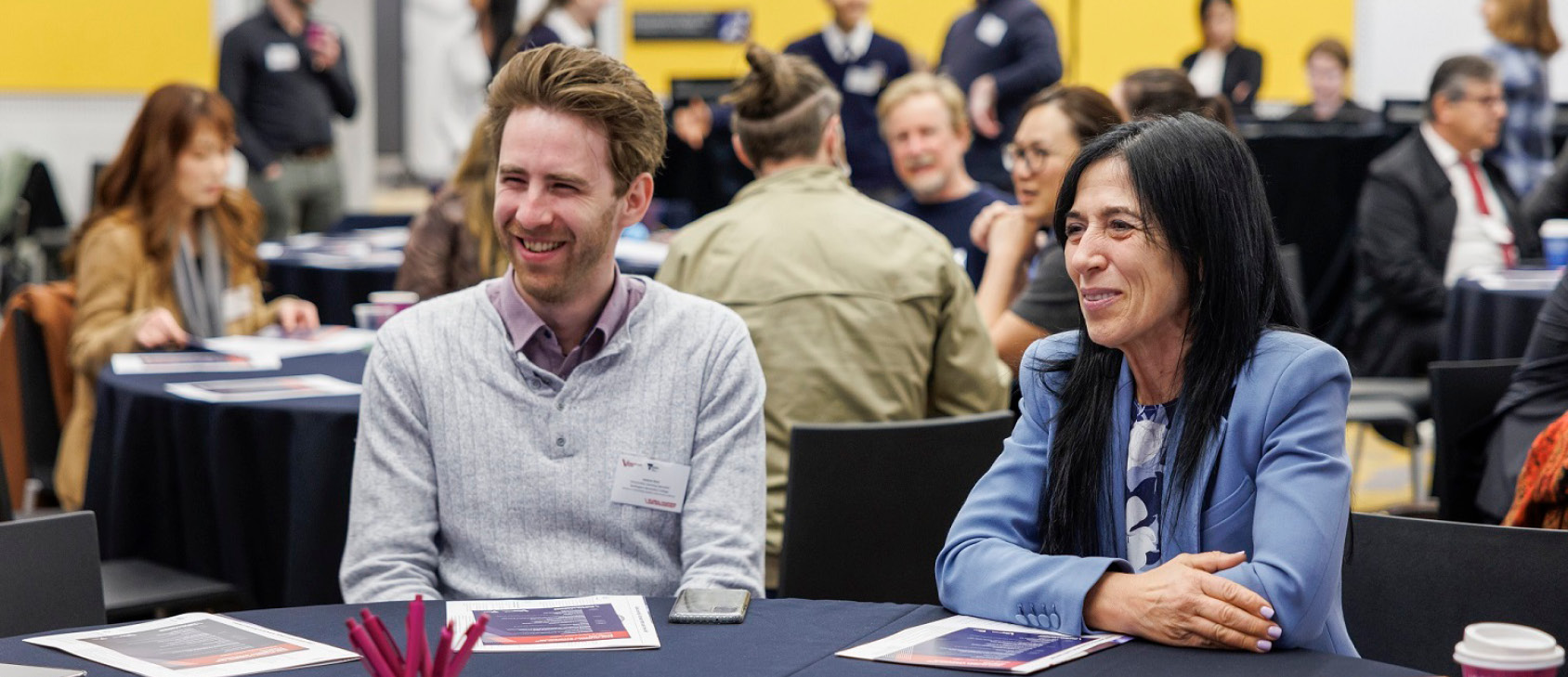Global Learning and Engagement Symposium
The Global Learning and Engagement (GL&E) Symposium is an annual event for Victorian principals and leading teachers to help them develop a greater understanding of, and commitment to global learning and engagement. Established in 2019, the symposium provides an opportunity for schools to give feedback on the department’s global learning programs and contribute to the development of future global learning and engagement strategy.
The event also serves as a platform for schools to discuss strategies to achieve Education State targets, FISO areas and the Victorian Curriculum F–10 Intercultural Capability through global learning and engagement.

2022 GL&E Symposium highlights
This year’s event was held in a hybrid format to bring together school principals and leading teachers from across Victoria. The event encouraged participants to share best practice, celebrate each other’s work, amplify excellence, and learn from thought leaders to gain an understanding of the importance of intercultural competence.
Opening keynote address - Anoushka Gungadin
The opening keynote address was delivered by Anoushka Gungadin, Director Strategic Partnerships at HeraMED, and former CEO of the Australia India Chamber of Commerce.
Anoushka's presentation on cultural intelligence (CQ) and why it is the competitive tool for the future, set the scene for the day and validated the importance of the work schools are doing in the global learning and engagement space.
With more emphasis currently on acquiring technical skills, Anoushka stressed the shift needs to lean towards making meaningful connections with people to build CQ. She highlighted that CQ provides us with the ability to engage and work with a diverse group of people and goes beyond existing notions of cultural sensitivity and awareness. With the core premise of CQ to build authentic connections, Anoushka shared how her ability to interact effectively across cultures has contributed to her career growth and development.
During the session, Anoushka also discussed the difference between inherent and acquired diversity and encouraged participants to create learning spaces for students to help them understand and embrace cultural diversity. Her presentation concluded with tips on how to be a great leader with CQ.
Global Youth Dialogue
In the Global Youth Dialogue session, primary and secondary school students discussed a range of issues, including technology, education, poverty, mental health, and the United Nations Sustainable Development Goals.
The student panel explored the positive and negative effects of technology and agreed that technological advancements make it easier for us to be a global citizen in today's world, but the overuse of technology can also lead to social isolation.
Students discussed the importance of making global learning more accessible at schools to promote democracy in classrooms and create opportunities for student voice to be heard. The general consensus of the panel was to see diversity in the curriculum to help students learn more about current events, global conflicts, advancements in science and technology and climate change.
The panel also talked about their appreciation of the breadth and diversity of international students in their classrooms and shared how they enjoy collaborating with them and learning about their cultures.
Concurrent sessions
The event included two concurrent sessions to stimulate discussion and debate among students and school leaders.
The Activating Student Voice session, facilitated by the Asia Education Foundation (AEF), provided an opportunity for the participants to explore the concept of cultural diversity and the importance of elevating student voice in schools. During the session, AEF used a variety of high impact teaching strategies and design thinking processes to encourage the audience to confidently share their thoughts on the topic.
The issues discussed at the session drew links to the three Intercultural Capability elements of the Victorian Curriculum F-10. This included raising awareness of and respect for cultural diversity, reflecting on how intercultural experiences influence attitudes, values, and beliefs and recognising the importance of appreciating the perspectives and views of others for a cohesive community.
This interactive dialogue-based session also critically explored the impact of globalisation and the importance of taking action for collective wellbeing and sustainable development.
In the Schools Standing up to Racism session, the Centre for Multicultural Youth provided participants with a range of strategies and tools to help them create safe spaces and build the intercultural awareness required to overcome the barriers to addressing biases in their school environment.
The session also discussed the importance of actively promoting and encouraging student voice to create meaningful and sustainable change.
Closing keynote address - Louka Parry
The event's closing keynote address was delivered by Louka Parry, an award-winning educator, learning strategist and speaker who works across the globe to support schools, changemakers and organisations to thrive in our constantly changing world.
In this session, Louka discussed the future of learning and shared how he uncovered his passion for languages, culture and education and became a school principal at the age of 27.
He stressed on the importance of embedding student voice, choice, and agency in schools to provide students with an opportunity to co-design in collaboration with school leaders and contribute to the development of democratic learning spaces.
During the session, Louka encouraged the participants to have thought-provoking conversations about shifting the structures of schools and shared his thoughts on the importance of personal identity and communities. He also talked about the challenges in today's education system and the five emerging conditions needed for the paradigm shift required for the future of learning. This included the concepts of agency, belonging, creativity, discernment, and embodiment.




